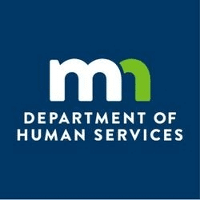The Crookston Public Schools Policy Committee had a meeting on Tuesday afternoon in the Crookston District Office Conference Room to discuss new policies and changes to some existing ones they received from Minnesota School Boards Association (MSBA) that they would bring forward to the next School Board meeting on October 24.
Interim Superintendent Dave Kuehn began the meeting by introducing a new policy to the school, Policy 722: Public Data and Data Subject Requests, and said it was one the committee needed to implement to the school district. The policy has the school district recognize its responsibility for collecting, maintaining, and disseminating public data and establishing procedures for public data and data subject requests. Superintendent Kuehn explained that it would become one of the several policies they would annually review. “For some reason, Policy 722, one that we’re supposed to annually review, is not a part of the district policy at this time, so we need to make it part of that,” Superintendent Kuehn explained. “Part of Policy 722 getting approved needs three readings, which is the normal practice with a first, second, and a third reading, which is the approval of the policy, so it’s a policy we don’t currently have in place that we need to get in place.”
The other annual policy they discussed was Policy 806: Crisis Management. Kuehn said he would invite Crookston Police Officer Don Rasciott to come and give a presentation at the next school board meeting of an overview of the School District’s plans to ensure the students and staff stay safe in case of a critical emergency.
The committed discussed Policy 208: Development, Adoption, and Implementation of Policies, which ensured the school board and superintendent had to implement the policies for the school and annually review them, with the major change being that the superintendent now only had to review three of the policies instead of eleven, at least once every three years.
The three the superintendent would still have to review were Policy 506: Student Discipline, 722: Public Data Requests, and 806: Crisis Management Policy. The rest of the policies that the comittee discussed are as follows –
Policy 209: Code of Ethics. Which explained that the code establishes standards of conduct that school board members create and agree to follow but also allows them to add to the code.
Policy 210: Conflict of Interest – School Board Members, which only had the significant change of increasing the pay limit school board members could make from $8,000 to $20,000.
The next policy was Policy 410: Family and Medical Leave Policy, with the main change being that any school employer is entitled to 12 work weeks of unpaid family or medical leave every year but required a bit more clarification on when the rolling 12-month period began. “I think the idea is that MSBA recommends a rolling period of time. So, if someone wants to use the Medical Leave Act for a leave of absence in November, then that’s when the time clock starts. It’s November to November, not school year to school year,” Superintendent Kuehn explained. “So, if you did a time in November and used up the 12 weeks and come back in September and think you can start a new one, you can’t. The rolling period is a year-long starting from that first request for that initial one.”
Policy 415: Mandated Reporting of Maltreatment of Vulnerable Adults, which mainly made some clarifications to some of its terms, such as “Abuse,” “Caregiver,” and “Financial Exploitation,” and what the district should do in these situations.
Policy 515: Protection and Privacy of Pupil Records, which added a new section about Education Support Services Data, which means data on individuals collected, created, used, or disseminated relating to programs administrated by a government entity or unless otherwise provided by law.
Policy 603: Curriculum Development, which required the addition of a District Advisory Committee and a School Site team. The Advisory Committee is an advisory committee to ensure active community participation in all phases of planning and improving the district’s academic standards. The committee comprises teachers, parents, support staff, and other community residents. The School Site team is a set of teams at each school to develop and implement strategies and education effective practices to improve student achievement, advise the School Board and Advisory Committee about developing the annual budget and an instruction improvement plan to align curriculum and growth in meeting the state and district’s academic standards. The team comprises an equal number of teachers, administrators, and at least one parent. Superintendent Kuehn reported that the schools already had these committees and were working to have better plans for both. “We have a district site team at each one of our buildings, and they’re ensuring the districts have these districtwide committees or building site committees in place,” Superintendent Kuehn explained. “We have one in place, and we’re working on having a better plan for our District Advisory Committee.” The next policy was Policy 604: Instructional Curriculum, which added College and Career Planning to help the students, even in 8th-9th grade, be prepared for college and careers.
Policy 708: Transportation of Nonpublic School Students, which had the main changes of ensuring that the bus driver and aide assigned to the bus be instructed in basic first aid and procedures for the students under their care, assist students with disabilities on and off the bus, and ensure that proper safety devices are in use. The next policy they discussed was Policy 709: Student Transportation Safety Policy, which prohibited bus drivers from texting or using their phones while transporting students.
The final policy they discussed was Policy 721: Uniform Grant Guidance Policy Regarding Federal Revenue Sources. The major change was that the district could choose to increase its federal micro-purchase threshold to $25,000, the Minnesota limit. However, Interim Superintendent Kuehn noted that he was satisfied with the district using only using $10,000, so this would change anything with the district’s budget and spending.
Kuehn said that the committee would bring the school board the first two policies they discussed for a first reading and introduce the new changes to the other policies they discussed for them to read and ask questions.
The Public School District will then hold a School Board Working Session on Tuesday, October 11, at 3:30 p.m. in the Crookston High School Choir/Orchestra Room to discuss proposed Multiuse Facility financing options. If you would like to read the policies and see the changes that were made to them, you can go to www.crookston.k12.mn.us/schoolboard-policies.

Tags:



